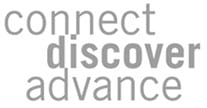Is Sunscreen Safe? This is What Doctors and Their Patients Need to Know.
- Posted on: Mar 15 2020
- Leave a response
 For decades, we have been strongly advised to wear sunscreen and to apply it to our children’s skin regularly to protect against skin cancer. Most sunscreen products that are sold in retailers have been approved by the FDA. For many years, this was seen as a sufficient proclamation of safety. This is no longer the case. Many consumers have begun to question the validity and even the very safety of sunscreen products due to some studies indicating risks associated with various ingredients.
For decades, we have been strongly advised to wear sunscreen and to apply it to our children’s skin regularly to protect against skin cancer. Most sunscreen products that are sold in retailers have been approved by the FDA. For many years, this was seen as a sufficient proclamation of safety. This is no longer the case. Many consumers have begun to question the validity and even the very safety of sunscreen products due to some studies indicating risks associated with various ingredients.
Rightfully so, consumers deserve answers about product safety and efficacy. Furthermore, they deserve adequate input from their physicians to help them make the most well-informed decisions. Working together, consumers and their healthcare providers can change the landscape of cancer prevention. Here, we discuss current findings based on research by the FDA and the Environmental Working Group (EWG).
For the first time in the history of sunscreen development, the FDA recently proposed “sufficient testing” on active ingredients in sunscreen to determine the rate of absorption in the skin and the potential impact on health resulting from exposure to those ingredients. At the time that this was proposed, only two active ingredients had been proven safe and effective: titanium dioxide and zinc oxide. Products with these ingredients, versus chemical sunlight filters, have consistently shown up on The Environmental Working Group’s approved sunscreen database.
Of particular interest at this time is the use of oxybenzone in chemical sunscreens. This ingredient, along with 12 others, is used in more than half of all sunscreens that were assessed by the EWG in 2019. These ingredients are part of the FDA’s list of products that require additional testing. The problems that have been found with oxybenzone include:
- Large amounts of this ingredient can be readily absorbed into the bloodstream through the skin
- The ingredient is allergenic
- It is a potential endocrine disruptor
- It has been detected in blood, urine, amniotic fluid, and breast milk
- There is a risk of bioaccumulation, especially in younger people
“Just Don’t Wear Sunscreen”
Amidst the confusion about sunscreens, many people have taken the stance that they just won’t wear sunscreen because doing so is worse than exposure to harmful UV rays. There is a middle ground and this is where information is vital. Doctors need to understand their patients’ fears, and patients need to feel as though they can trust their healthcare providers as well as the FDA, who is responsible for approving products.
Find the Middle Ground
A full list of tested and rated sunscreens can be found on the Environmental Working Group website. Some of the products included on their list include:
- Banana Boat Simply Protect Baby Sunscreen Stick
- Banana Boat Kids Sport Sunscreen Stick
- Banana Boat Ultra Sport Sunscreen Stick
- Coppertone Pure and Simple Sunscreen Lotion
- Neutrogena Sheer Zinc Dry-Touch Sunscreen Lotion
- Pacifica Mineral Body Butter Lotion
It is up to consumers to be well-informed about the value of sunscreen in comparison to the risks of ingredients that need further testing. It is up to physicians to stay abreast of the research and development of sunscreen products so they can provide their patients with the well-considered information they need to feel more confident in the use of sunscreen for themselves and their families.
The American Society for Mohs surgery is committed to supporting physicians in the diagnoses and treatment of skin cancers. We also recognize that prevention is a vital aspect of patient-centered care. For more information on our upcoming courses, call (800) 616-2767. For more sunscreen information from the Environmental Working Group, visit their website here.
Posted in: Skin Care


